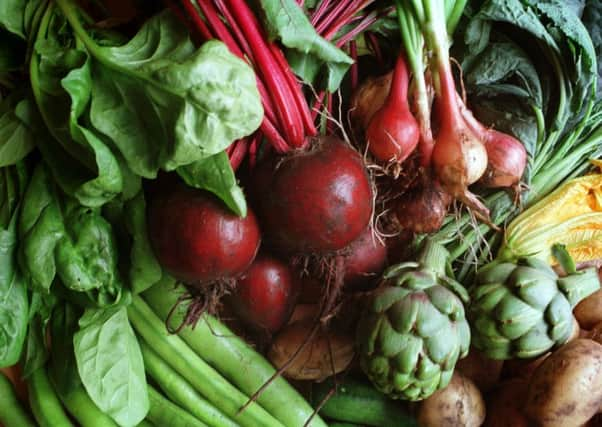Lettuce consider the real food crisis facing us all
This article contains affiliate links. We may earn a small commission on items purchased through this article, but that does not affect our editorial judgement.


The laugh-aloud side was the recent revelation that Britain faced a shortage of courgettes and iceberg lettuce because of bad weather in Spain, with panic buying in supermarkets and the few remaining greengrocers. A first thought, as someone who in spite of all attempts, faces an annual courgette glut in August and can hardly give them away, was who on earth eats them in January?
And who, willingly, ever eats iceberg lettuce? Taste nil, nutritional value nil, a vegetable that keeps on growing disconcertingly- as proved by a late, elderly friend – in the fridge if not used. A second thought was that surely a salad crisis couldn’t apply in Scotland where dislike of greenery on a plate is legendary.
Advertisement
Hide AdAdvertisement
Hide AdThat didn’t stop media attempts to whip up a story. Lord Tebbit, not someone with whom I would normally agree about anything, provided my third thought when he told fellow peers: “To describe a shortage of lettuces in supermarkets as a crisis shows a lack of understanding of the meaning of the words in the English language.”
Many, apart from the media, agreed. In spite of his best efforts, for example, Jeremy Vine on Radio 2 couldn’t get a greengrocer or a vegetable trade specialist or even a Radio 2 listener deputed to look for courgettes, to agree with him.
There is no crisis, or even a shortage, they reported and the so-called iceberg lettuce crisis was because fast-food outlets – allowing me to rest my case on their quality – were looking for cheap supplies to fill burger rolls.
But having had a laugh and a rant I thought of two more serious issues connected with the alleged shortage of two unremarkable vegetables. One issue is seasonality. The second is how much of our food supply is imported.
Eating foods only in season has become history for many products. Think of rasps and strawberries. Not so many years ago the strawberry season lasted about six weeks, rasps possibly a little longer.
Now thanks to technology, polytunnels, new varieties, growers whose skill at producing what supermarkets want cannot be over-estimated and growing them in Spain – by Scottish companies with the expertise to do it – we have rasps and strawberries virtually all year.
The same applies to many other fruits and vegetables. At present asparagus, cherries and Seville oranges for the declining band of marmalade makers are probably as near seasonal-only as we get. Almost everything else on a supermarket shelf can be bought year-round.
Advertisement
Hide AdAdvertisement
Hide AdRemember the excitement – sorry, carried away there – of the first new potatoes on sale or home-grown? New potatoes, or similar, now available almost any time of year. Likewise apples, carrots, onions, and much more.
Meat is slightly different. New season lamb still has a cachet of sorts, but virtually every other kind of meat can be eaten at any time of year. Not least turkey, which used to be a once a year speciality.
All that led to my second thought about British self-sufficiency. The most recent estimate is that we produce just over 60 per cent of foods that can be produced here. Other countries, notably Ireland, send us huge amounts of meat. Dairy products pour in, as do many of the vegetables and fruits already mentioned.
What happens, one might ponder, when we finally get out of the European Union? Free trade, is the cry. But there is no more free trade than there is a free lunch. Any trade agreement Britain reaches with a country outside the EU – America, Australia, Canada, China, Brazil – can only be on an ‘You can sell us this if we sell you that.’
In many cases, Britain’s farmers will be disadvantaged by that sort of deal with countries with cheaper labour, lower animal welfare standards and possibly questionable use of antibiotics and hormones. Instead of the chance to produce more of our own food we could be producing less and subject to more crises of supply when things go wrong. Next time it could be much worse than no iceberg lettuce for burger buns.
